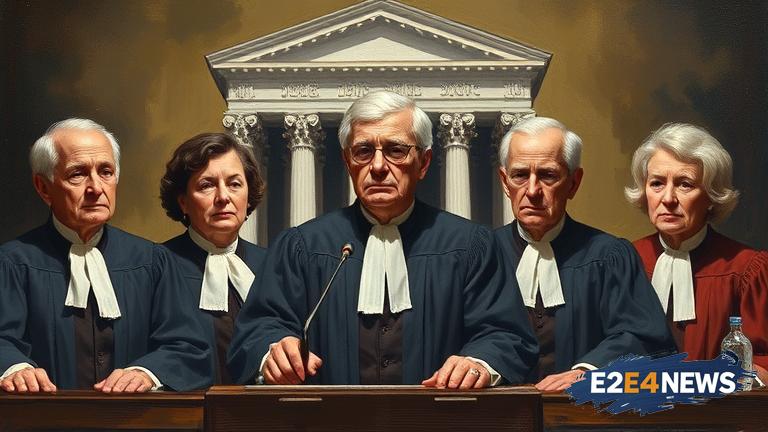In a shocking turn of events, 56 former judges from across India have come together to condemn a statement made by 18 of their colleagues. The statement in question had expressed concerns over the current state of judicial independence in the country. However, the 56 ex-judges have accused their 18 colleagues of using the language of judicial independence to further their own political agendas. They argue that the statement was motivated by a desire to undermine the current government and its policies. The 56 ex-judges have expressed their disappointment and disillusionment with the statement, saying that it has brought the judiciary into disrepute. They have also accused the 18 ex-judges of being selective in their criticism, choosing to target only certain aspects of the government’s policies while ignoring others. The controversy has sparked a heated debate over the role of the judiciary in Indian politics. Many have praised the 56 ex-judges for speaking out against what they see as an attempt to politicize the judiciary. Others have criticized them for trying to stifle dissent and silence those who are speaking out against the government. The issue has also raised questions about the independence of the judiciary and its ability to function impartially. The 18 ex-judges who made the original statement have defended their actions, saying that they were simply trying to protect the integrity of the judiciary. However, their critics argue that their statement was poorly timed and has only served to further polarize the debate. The controversy has also highlighted the deep divisions within the Indian judiciary, with many judges and former judges holding strongly differing views on the role of the judiciary in politics. Despite the controversy, many have praised the 56 ex-judges for their courage in speaking out against what they see as an attempt to undermine the judiciary. The issue is likely to continue to be debated in the coming days and weeks, with many calling for greater clarity and transparency in the functioning of the judiciary. The Indian government has so far refused to comment on the controversy, saying that it is a matter for the judiciary to resolve. However, the opposition has seized on the issue, accusing the government of trying to interfere with the functioning of the judiciary. The controversy has also sparked a wider debate about the role of the judiciary in Indian society, with many calling for greater accountability and transparency. The 56 ex-judges have said that they will continue to speak out against any attempts to undermine the judiciary, and have called on their colleagues to join them in defending the integrity of the institution. The issue has also raised questions about the future of the Indian judiciary, with many wondering what the consequences will be of the current controversy. The 18 ex-judges who made the original statement have said that they will not be silenced, and will continue to speak out against what they see as threats to the independence of the judiciary. The controversy has also highlighted the importance of judicial independence, with many arguing that it is essential for the functioning of a healthy democracy. The Indian judiciary has a long history of independence, and many have praised its role in protecting the rights of citizens. However, the current controversy has raised questions about the ability of the judiciary to function impartially, and has sparked a wider debate about the role of the judiciary in Indian society.
